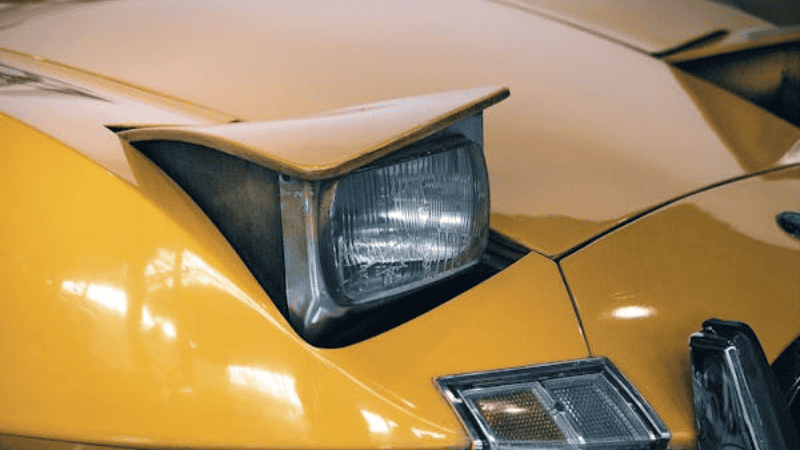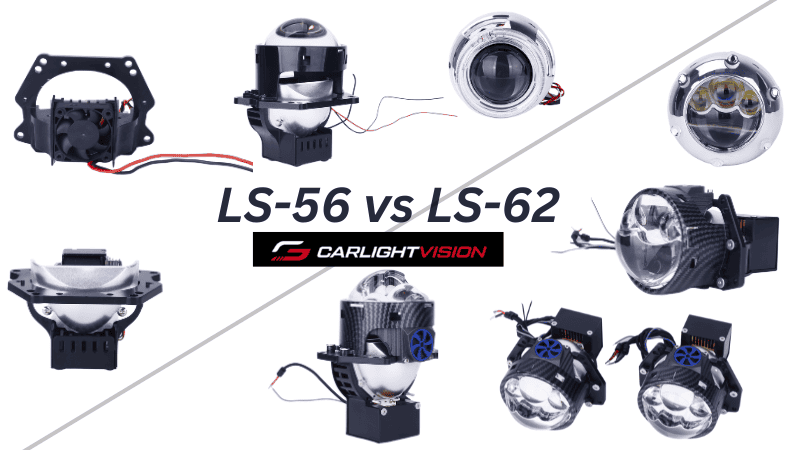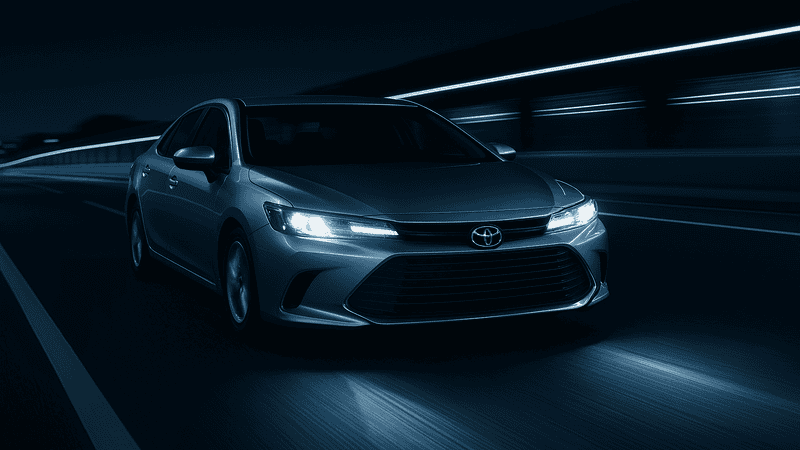The CANbus system is critical to the operation of modern vehicles, but LED headlights are not compatible with all of these systems. This is why you may need CANbus LED headlights.
In this guide, we explore CANbus LED headlights and the CANbus system, explaining their functions and importance.
We also explain how to determine whether you need CANbus LED bulbs and answer a few common questions about these lights and LED bulb compatibility. Read on to learn more.
What Are CANbus LED headlights?
CANbus LED headlights have an inbuilt CANbus decoder. The decoder helps the LED bulb simulate the electrical load of the original halogen bulbs in the circuit, preventing false bulb failure warnings and other issues.

Halogen bulbs require more power than LED bulbs. When you replace a halogen bulb with an LED bulb, the CANbus system may detect that the bulb is drawing less power than it should under normal conditions. It will thus try to alert you to this ‘problem’.
The built-in resistor in a CAN bus bulb ensures that its power draw is closer to that of a halogen bulb. As a result, the CANbus system won’t be able to tell the difference between the two in most cases.
What is the CANbus System?
CANbus or CAN bus is a system used to facilitate communication between the different electronic control units (ECUs) in a car.
CANbus uses the controller area network (CAN) standard to facilitate efficient communication between microcontrollers, minimizing the amount of wiring required.
A modern car can have up to 70 ECUs. Each electronic control unit gathers data from a specific subsystem. Examples of subsystems in the cars that have their ECUs include:
- The engine
- Airbags
- Cruise control
- Audio system
- Doors
- Headlights, etc.
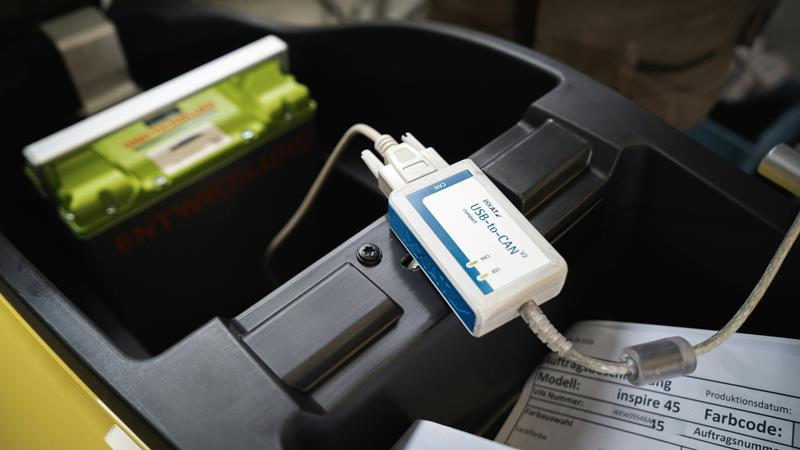
All the ECUs transmit their information to the controller area network bus where it can be accessed by other ECUs in the car.
The CANbus was developed by Bosch in 1983, and the first car to feature a CANbus was released in 1991.
The Role and Importance of The CANbus
The CANbus system enables manufacturers to implement many features through software alone. Without the CANbus, implementing these would require complex wiring, which would increase vehicle costs. Some of these CANbus-enabled features are discussed below.
1. Efficiency: Improved Fuel-Economy with Auto Start/Stop
In some vehicles, the engine can automatically shut off to save on fuel and reduce emissions if the vehicle is stationary for a given period. These cars use data from different sensors in systems connected to the CANbus to determine whether the car is moving.

2. Safety: Failed Bulb Notifications
A failed bulb may go unnoticed for a long time. For headlights, brake lights, fog lights, and other important automotive lights, this can be dangerous. If the headlight system is connected to the CANbus, you will be notified if a bulb isn’t functioning correctly.
3. Convenience – Parking Assist
When the reverse gear is engaged, other systems are notified through the CANbus and this leads to the activation of parking sensors, rear camera, and other systems that make reversing easier.
Advantages of CANbus LED Headlights
Compared to regular LED headlights, CANbus LED headlights come with several advantages when used in vehicles with CANbus systems. Some of the advantages are discussed below.
1. Compatibility With Vehicle Electronics

Replacing a halogen bulb with an LED bulb can interfere with the electrical system in the car. LED bulbs don’t just consume less power than halogens, they also consume power in a different pattern than halogen bulbs in certain cars.
A CANbus LED headlight bulb is designed to replicate the effect of a halogen bulb on the circuit. This means the LED bulb shouldn’t negatively affect the existing system or trigger false warnings.
2. Optimal LED Bulb Performance.
A good LED light bulb may not perform as expected in certain vehicles. In some vehicles, LED lights may flicker, and in others, they may be dimmer than usual. You may also notice unusual behavior such as the bulbs staying on after being switched off.
Compatibility issues cause these problems. CANbus LED bulbs are designed to avoid these problems even in vehicles that use pulse width modulation (PWM).
3. Easy Installation
Many car owners want a plug-and-play experience when installing their new LED bulbs. Bulbs that require the purchase and installation of additional components will be less attractive.

Unlike regular LED bulbs, a CANbus bulb will not require purchasing a separate CANbus decoder in bus-equipped vehicles.
4. Accurate Error Detection
If the installation of an LED bulb triggers false warnings and these are not properly addressed, you may not be aware when the system throws up a valid warning.
CAN bus bulbs are not expected to trigger false warnings and this makes the CANbus error detection more reliable.
Does Your Car Need CANbus LED Headlights?
Not every car with a CANbus system requires a CANbus LED headlight. Some signs that you may need an LED with a CANbus decoder are:
- Lights flicker when you turn them on
- Unusually low light levels
- A ‘bulb out’ warning on your dashboard
- Unusual response from other electrical components in your car when you install an LED bulb
- Headlights switch off on their own after a short period
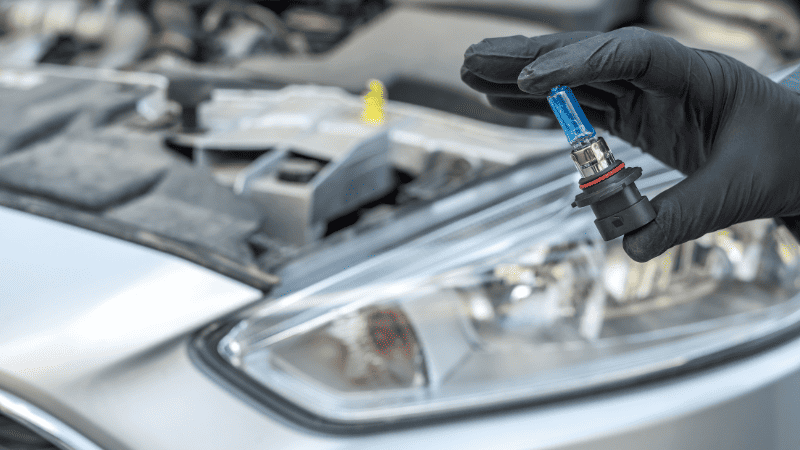
If your car was manufactured recently, especially in the past ten years, it is likely to have a CANbus system. If that is the case, getting CANbus LED bulbs is a good idea.
If your vehicle does not have a CANbus system, you should purchase non-CANbus LED lights. Consulting the owner’s manual can confirm if your vehicle has a CANbus system.
FAQs
Here are some frequently asked questions about CANbus LED headlights and LED bulb compatibility.
1. Do I need a decoder for my LED headlights?
If you own a car with a CANbus system and are experiencing errors when you install LED light bulbs, you need a CANbus decoder. You can buy a separate CANbus decoder or CANbus headlight bulbs that have the decoder built in.
If your car does not have a CANbus system, then you don’t need CANbus LED headlights or a CANbus decoder for your LED headlights.
2. What is a warning canceller?
A warning canceller is another name for the LED CANbus decoder. It’s called a warning canceller because installing it eliminates false warnings from the CANbus system when LED bulbs are installed.
3. Why are my LED headlights flickering?
If your newly installed LED lights are flickering, they are not getting the kind of power they need to function correctly.
Pulse width modulation technology is used in some cars to limit the amount of heat produced by halogen bulbs. The power is sent to the bulbs in pulses, but this isn’t noticeable unless you switch to LEDs.
You can avoid this issue by installing CANbus LED bulbs or a decoder.
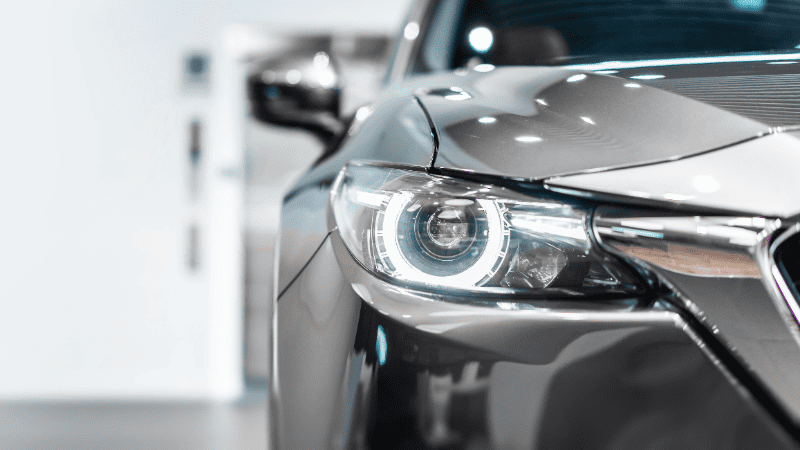
3. Why do my LED headlights switch off after a short time?
In some cars, the onboard computer will cut off all power to a bulb if it detects that it is out. Since LED bulbs use less power, the signals to the CANbus will be similar to those of a bulb that is out and power will be cut off completely.
4. What is a resistor kit?
Resistor kits add resistance to an LED bulb’s electrical circuit to simulate what the system expects from a conventional bulb. In the few cases where a CANbus-compatible LED bulb still causes an error message, you may need to install a resistor kit.
Many CANbus decoders today have both resistors and capacitors. This enables them to address the different compatibility issues LED bulbs face, including simulating the power load of halogen bulbs and delivering a non-pulsing supply of power to the LEDs.
Conclusion
CANbus LED headlights can help make the installation of new LED headlights a more straightforward experience. These headlights come with inbuilt CANbus decoders that prevent the CANbus system from issuing false error messages and also prevent problems like flickering.
CANbus LED headlights are designed for vehicles with CANbus systems. This covers most vehicles manufactured in the last 20 years.
Car owners can also opt to install regular LED bulbs and buy separate CANbus decoders or resistor kits to avoid CANbus errors.
Get Premium CANbus LEDs – Fast & Reliable
Carlightvision has more than 15 years of experience manufacturing LED headlight bulbs. Our CANbus-ready bulbs are designed to work error-free with 99% of onboard computers and they also have an IP68 waterproof rating.
We have a monthly production capacity of over a million units and you can have your order shipped in less than 7 days. Check out our range of CANbus LED bulbs and you can also download our catalog from our website. Contact us now!


